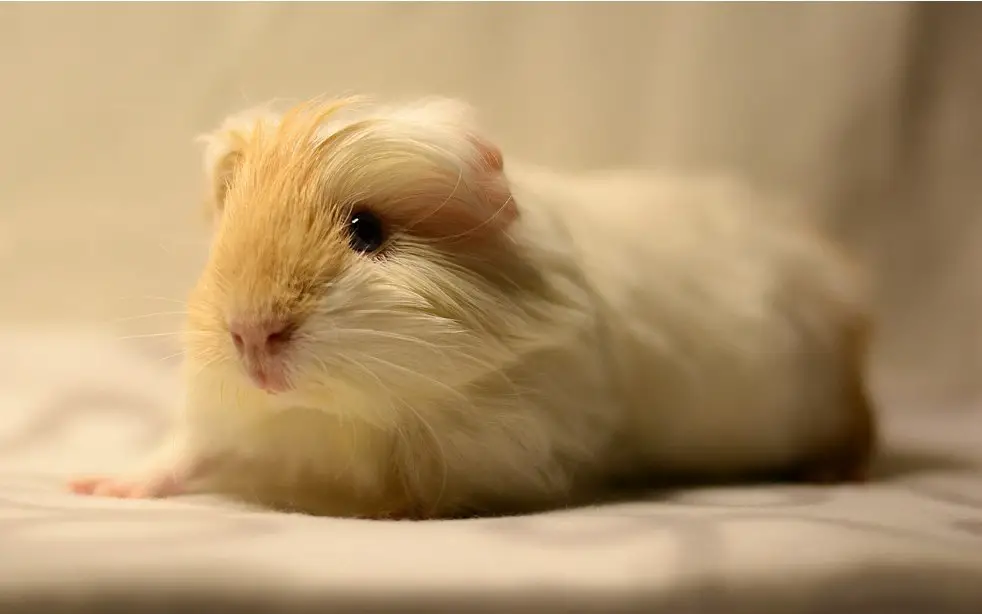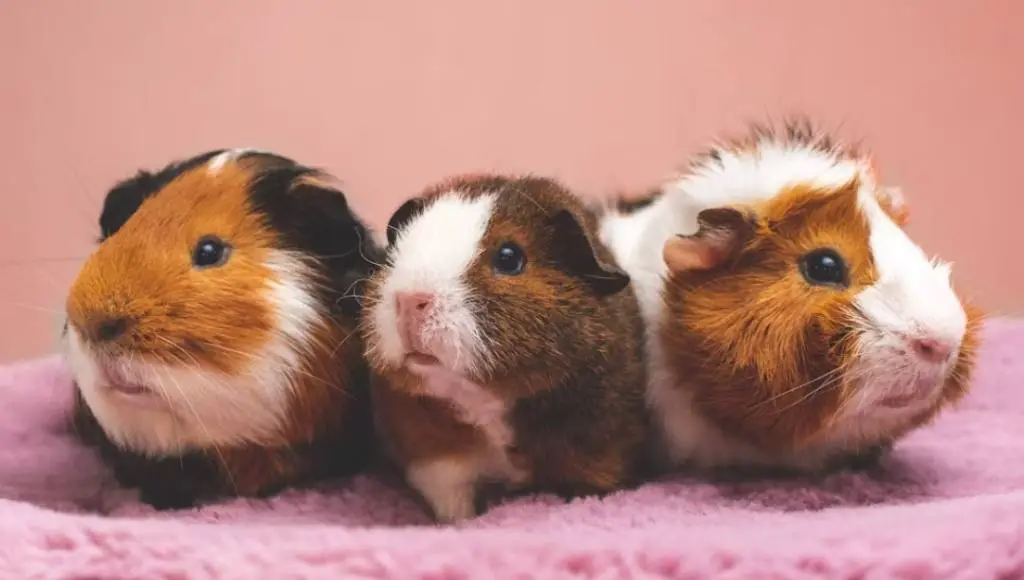8 Factors Affecting Life Span of Guinea Pigs Explained

Have you ever wondered how long our adorable little guinea pig pals stick around?
Well, grab a cup of tea and settle in, because today we’re diving into the fascinating topic of guinea pig life spans.
From their joyful squeaks to their cozy cuddles, let’s uncover the secrets behind these lovable furballs and how we can ensure they live their best lives by our sides.
Life Span of Guinea Pigs
Guinea pigs have an average lifespan of 5–7 years, but some can live longer, with the oldest known guinea pig reaching almost 15 years old.
In the wild, guinea pigs typically live for 1–4 years due to being a common prey species and living in harsh environments.
Factors that can influence a guinea pig’s lifespan include genetics, diet, environment, and overall care.
It’s important to note that while guinea pigs have longer lifespans compared to other small mammals like hamsters and mice, they still require a long-term commitment from their owners
Factors affecting guinea pig life span

Here are some factors that can influence the life span of guinea pigs:
1. Genetics
Genetics plays a significant role in determining the lifespan of guinea pigs. Just like humans, guinea pigs inherit certain traits and predispositions from their parents.
Some guinea pigs may have a genetic predisposition to certain health issues or a shorter lifespan.
However, it’s important to note that genetics alone doesn’t determine the entire lifespan. Proper care and a healthy environment are equally important.
2. Living conditions
The living conditions of guinea pigs can greatly impact their lifespan.
Guinea pigs need a clean and comfortable living space with adequate ventilation.
Their cage should be spacious enough to allow for exercise and exploration.
Avoid placing them in extreme temperatures or direct sunlight, as they are sensitive to heat and cold.
Additionally, it’s essential to provide them with a safe and stress-free environment, away from loud noises or potential predators.
A well-maintained living environment can contribute to a longer and healthier life for guinea pigs.
3. Diet and nutrition
Diet and nutrition are crucial factors in determining the lifespan of guinea pigs.
These small animals require a balanced diet rich in fresh hay, high-quality guinea pig pellets, and a variety of fresh vegetables and fruits.
Hay is particularly important for their digestive health and dental care.
Avoid feeding them foods high in sugar, such as chocolate or candy, as these can lead to obesity and other health issues.
Fresh, clean water should always be available. Providing a nutritious and well-rounded diet is essential for the overall health and longevity of guinea pigs.
4. Health status
The health status of a guinea pig greatly affects its lifespan. Regular veterinary check-ups are important to monitor their health and detect any potential issues early on.
A guinea pig with underlying health conditions or chronic illnesses may have a shorter lifespan.
It’s important to watch for signs of illness, such as changes in appetite, weight loss, abnormal behavior, or respiratory problems, and seek veterinary care promptly if any concerns arise.
By providing proper healthcare, preventive measures, and prompt treatment, you can help improve the lifespan and quality of life for your guinea pig.
5. Breeding practices
Breeding practices play a significant role in determining the lifespan of guinea pigs.
Responsible breeding practices involve selecting healthy and genetically diverse parents.
Breeding guinea pigs with known health issues or genetic disorders can increase the likelihood of passing on these problems to the offspring, which can shorten their lifespan.
It’s essential to avoid breeding guinea pigs that are too young or too old, as this can also impact the health and longevity of the offspring.
Responsible breeders focus on promoting the overall health and well-being of guinea pigs to ensure they live long and happy lives.
6. Exercise and activity level
Just like humans, exercise and activity level can greatly influence the lifespan of guinea pigs.
Regular exercise is crucial for maintaining their physical and mental well-being.
A sedentary lifestyle can lead to obesity, muscle weakness, and various health issues, which can shorten their lifespan.
Providing guinea pigs with a spacious and stimulating living environment, including ample space for running and exploring, can encourage them to be more active.
Additionally, interactive toys and activities can help keep them mentally stimulated and physically engaged, ultimately contributing to a longer and healthier life.
7. Healthcare and veterinary care
Proper healthcare and regular veterinary care are vital for ensuring the longevity of guinea pigs.
Regular check-ups with a knowledgeable veterinarian can help detect any underlying health issues early on and prevent them from worsening.
Vaccinations, parasite prevention, and dental care are essential aspects of guinea pig healthcare.
Providing a balanced and nutritious diet, along with fresh water, is also crucial.
Additionally, maintaining a clean living environment and practicing good hygiene can help prevent the spread of diseases and infections.
Prompt and appropriate medical intervention is key to addressing any health concerns promptly and effectively, thus maximizing the lifespan of guinea pigs.
8. Stress Levels
Stress can have a significant impact on the lifespan of guinea pigs.
Guinea pigs are sensitive animals, and prolonged or severe stress can weaken their immune system and make them more susceptible to various health problems.
To minimize stress, it’s important to provide guinea pigs with a calm and secure environment.
This includes ensuring they have a quiet space to retreat to, away from loud noises and excessive commotion.
Handling guinea pigs gently and with care, as well as providing them with opportunities for social interaction with both humans and other guinea pigs, can also help reduce stress levels.
Additionally, maintaining a consistent daily routine can provide a sense of security and stability for these small animals.
Ways to help prolong the life span of guinea pigs

Guinea pigs are adorable little creatures, and it’s important to take good care of them to ensure they live long and happy lives.
Here are some effective ways to help prolong the life span of guinea pigs:
1. Provide a balanced diet: Guinea pigs need a balanced diet that consists of fresh hay, high-quality guinea pig pellets, and a variety of fresh vegetables. Avoid feeding them sugary or fatty foods, as these can lead to health issues.
2. Fresh water: Make sure your guinea pig always has access to fresh, clean water. Change their water daily to prevent any contamination.
3. Regular veterinary check-ups: Just like any other pet, guinea pigs need regular check-ups with a veterinarian. This helps catch any health issues early on and ensures your furry friend is in the best possible shape.
4. A spacious and comfortable habitat: Guinea pigs need plenty of space to move around, so make sure their habitat is large enough for them to exercise and explore. Include hiding spots, tunnels, and toys to keep them mentally stimulated.
5. Clean and hygienic environment: Regularly clean your guinea pig’s habitat to maintain a clean and hygienic living space. Remove any soiled bedding, clean their dishes, and ensure their area is free from any potential hazards.
6. Exercise and playtime: Guinea pigs are active little animals and need regular exercise. Allow them to roam around in a safe, supervised area outside of their enclosure, or provide them with a guinea pig-safe exercise wheel or toys to keep them active.
7. Social interaction: Guinea pigs are social animals and thrive in the company of their own kind. Consider getting them a same-sex companion to prevent loneliness and provide stimulation.
8. Grooming: Regular grooming is essential for guinea pigs to keep their coats healthy and clean. Brush their fur gently to remove any tangles or debris, and trim their nails regularly to prevent overgrowth.
9. Stress-free environment: Guinea pigs are sensitive creatures, so it’s essential to provide them with a calm and stress-free environment. Avoid loud noises, sudden movements, or any other factors that may cause stress or anxiety.
10. Environmental temperature control: Guinea pigs are sensitive to extreme temperatures. Keep their living space at a comfortable temperature, avoiding direct sunlight and drafts.
By following these tips, you’ll be well on your way to providing your guinea pigs with a long and happy life.
Learn more about looking after guinea pigs.
FAQs
How long do guinea pigs live on average?
Guinea pigs have an average life span of about 5 to 7 years. However, with proper care and a healthy diet, some guinea pigs have been known to live up to 8 years or even longer.
What factors can affect the life span of a guinea pig?
Several factors can influence the life span of a guinea pig. These include genetics, diet, exercise, living conditions, and overall healthcare. Providing a balanced diet, regular veterinary check-ups, and a safe and stimulating environment can contribute to a longer and healthier life for your furry friend.
Is there anything I can do to increase the life expectancy of my guinea pig?
Absolutely! There are several things you can do to promote a longer life for your guinea pig. Providing a diet rich in fresh vegetables, fruits, and high-quality hay, along with a limited amount of pellets, can help maintain their overall health. Regular exercise, such as supervised playtime outside their enclosure, also contributes to their well-being.
Do different guinea pig breeds have different life spans?
While the life span of guinea pigs can vary slightly between different breeds, it is not a significant difference. The overall care and health practices you provide for your guinea pig are more influential in determining their life expectancy than their breed.
Can guinea pigs live alone or do they need companions?
Guinea pigs are social animals and thrive when they have companionship. It is recommended to keep them in pairs or small groups of the same sex to prevent unwanted breeding. Having a companion not only provides mental stimulation but also helps them feel secure and happy, potentially contributing to a longer life.
What are some signs of aging in guinea pigs?
As guinea pigs age, you may notice certain signs indicating their advancing age. These can include a decrease in activity level, reduced appetite, changes in weight, dental issues, and joint problems. Regular check-ups with a veterinarian can help identify and address any age-related health concerns early on.
Learn more about reasons to get a guinea pig.
Conclusion
In conclusion, owning a guinea pig can bring years of joy and companionship to your life. Remember to provide them with a nutritious diet, a comfortable living environment, and regular veterinary check-ups to maximize their lifespan. With proper care, these adorable little creatures can be cherished members of your family for 5 to 7 years or even longer!
